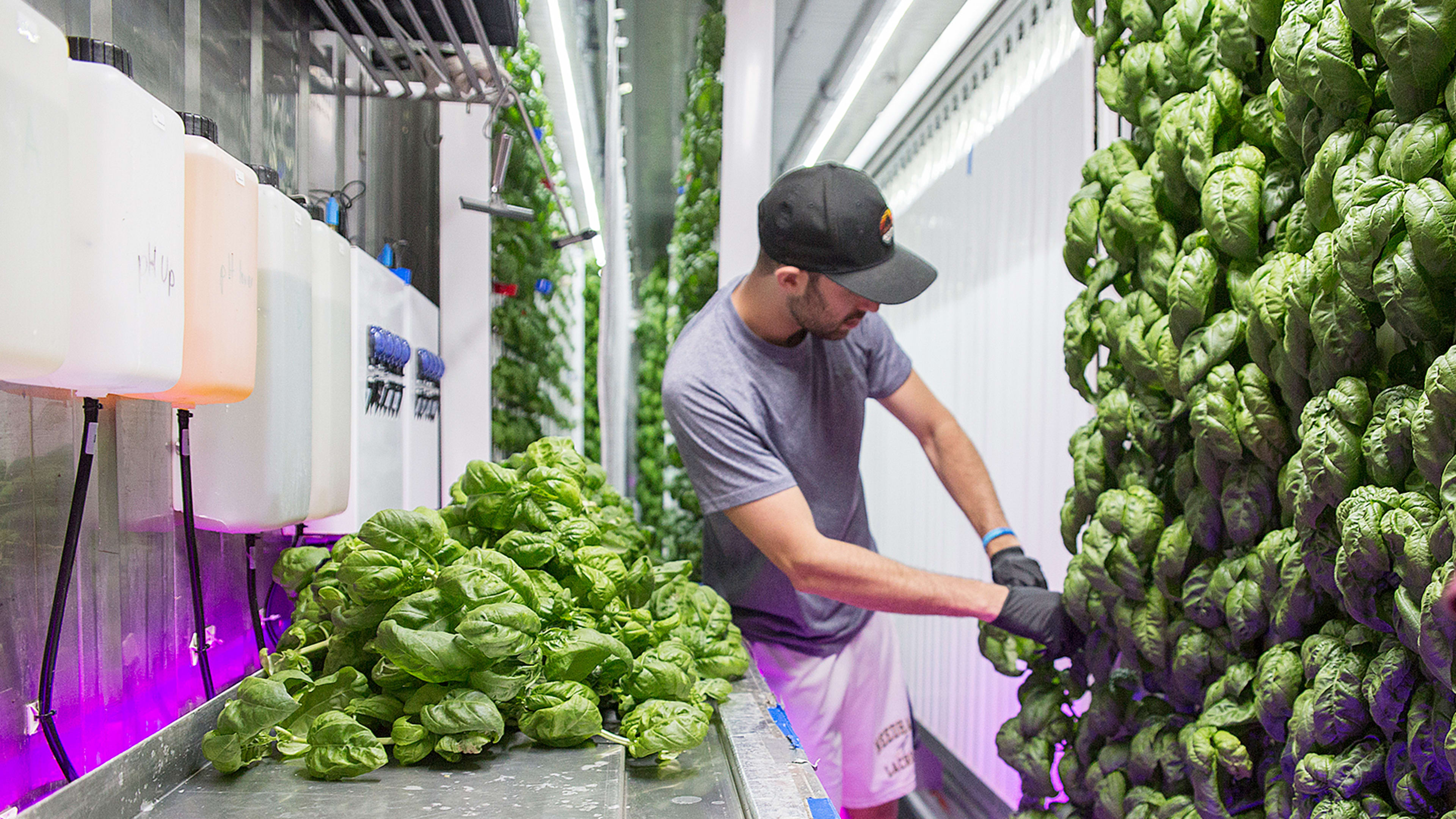In a parking lot outside a former pharmaceutical factory in the Brooklyn neighborhood of Bedford-Stuyvesant, 10 entrepreneurs have spent the last nine and a half months learning how to take on the industrial food system through urban farming. Square Roots–a vertical farming accelerator co-founded by Kimbal Musk, with a campus of climate-controlled farms in shipping containers–is getting ready to graduate its first class.
With a new round of $5 million in seed funding, led by the Collaborative Fund, the accelerator is making plans to build new, larger campuses in other cities.
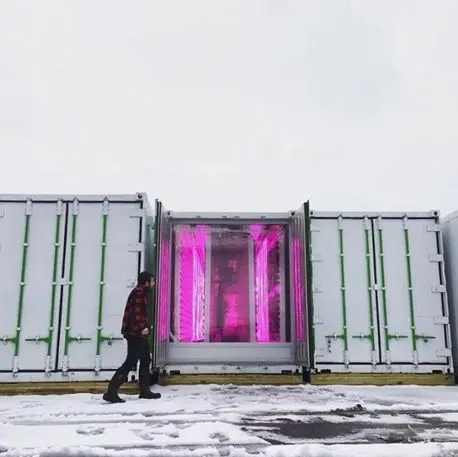
Musk, who runs several health-focused restaurants and nonprofit school gardens (and is Elon’s brother), saw the need for a large network of well-trained young entrepreneurs who could quickly grow urban farming. “We wanted to come up with a model that scaled small urban farming, so literally every consumer of food can have a direct relationship with a farmer,” says Square Roots co-founder and CEO Tobias Peggs.
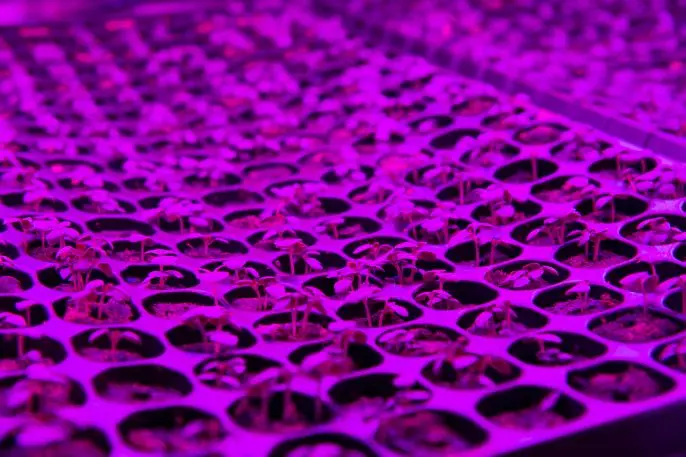
In a learn-by-doing model, everyone immediately starts farming. “When this first cohort joined on November 7, on that day, literally the farms were dropped from a truck onto the parking lot,” Peggs says. “Eight weeks later, we had our first farmers market in Bed-Stuy, where those people had learned to grow really tasty food. The whole system is kind of geared up to have a very fast learning curve.”
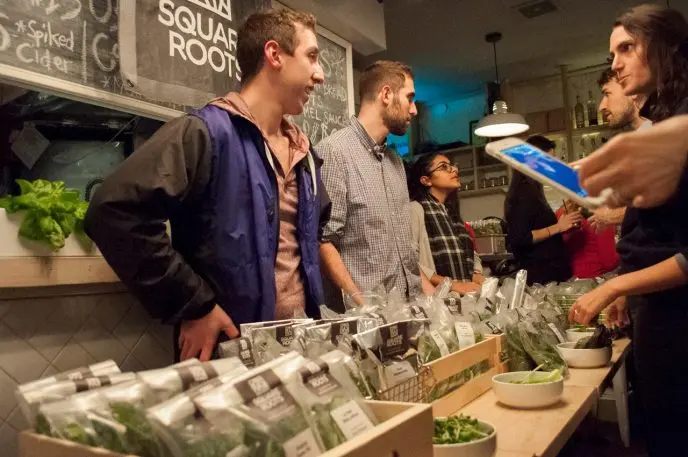
One pair of entrepreneurs worked together to launch a farm-to-desk delivery program that brings fresh greens to dozens of New York City offices. Another student is focused on growing greens for low-income neighborhoods. Someone else launched a business delivering produce to New Jersey while running her Square Roots farm. A former engineer is developing an improved lighting system for indoor farming and plans to launch an equipment business. Another entrepreneur used data analysis to perfect a growing recipe for heirloom basil, which he sells to restaurants and markets. (The accelerator’s layout, with modular growing containers, also allows it to study data about yield and quality and improve the technology for future students).
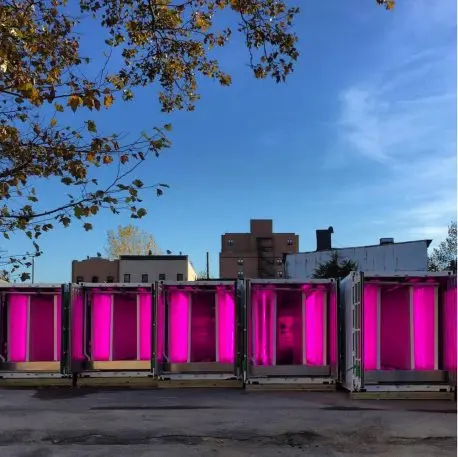
Lakhani partnered with a SoHo restaurant, Chalk Point Kitchen, to become its “official farmer,” growing food on demand for the chef. The restaurant buys her entire yield from the shipping container, and Lakhani provides a year-round supply of produce. She also visits the restaurant once a week to wander around tables talking with customers.
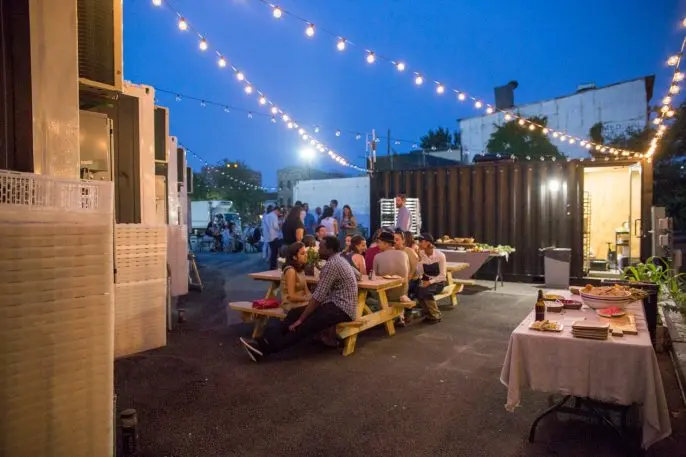
The first cohort will graduate in October, and the accelerator is taking applications for its next class; in 2016, it had 500 applicants for 10 spots. In its new location in a yet-to-be announced city, it plans to have larger campuses with room for more students. The founders also hope to quickly launch in more locations. “It’s all stemming from the mission of real food for everyone,” says Peggs. “Ultimately, we want to put a Square Roots campus in every city in the U.S.”
Recognize your brand’s excellence by applying to this year’s Brands That Matter Awards before the early-rate deadline, May 3.
